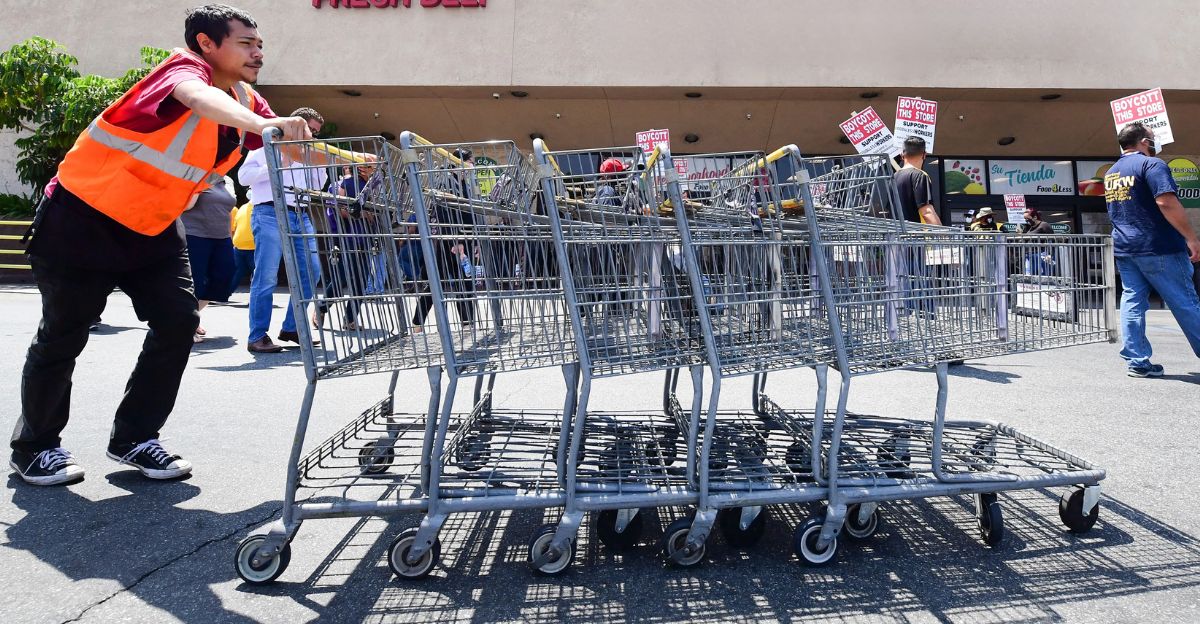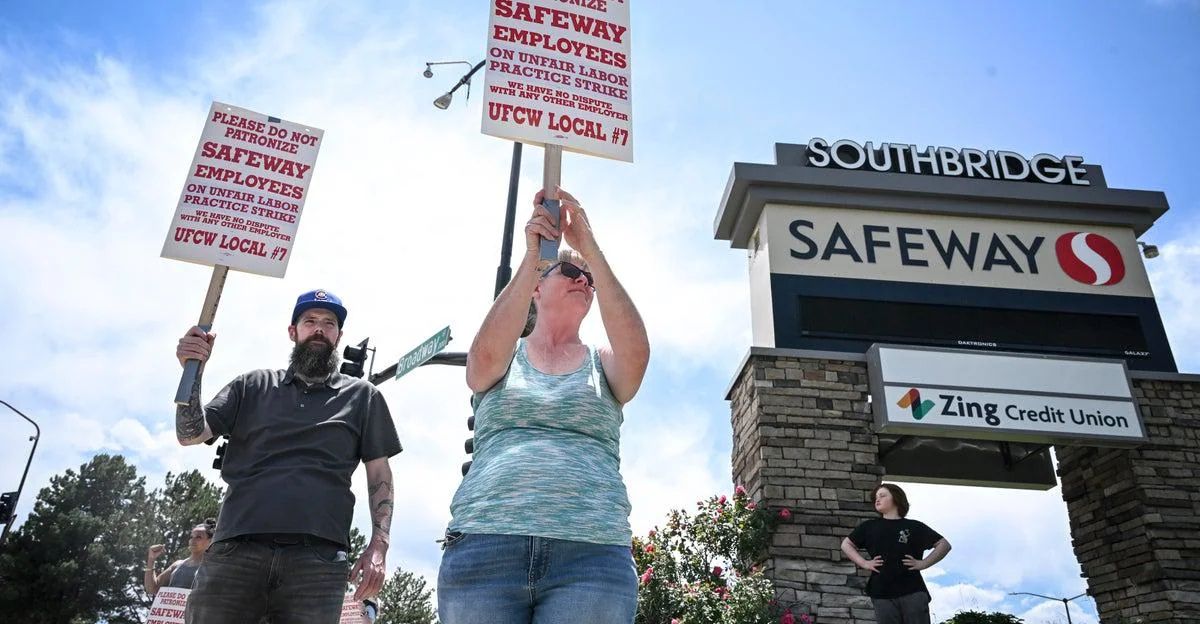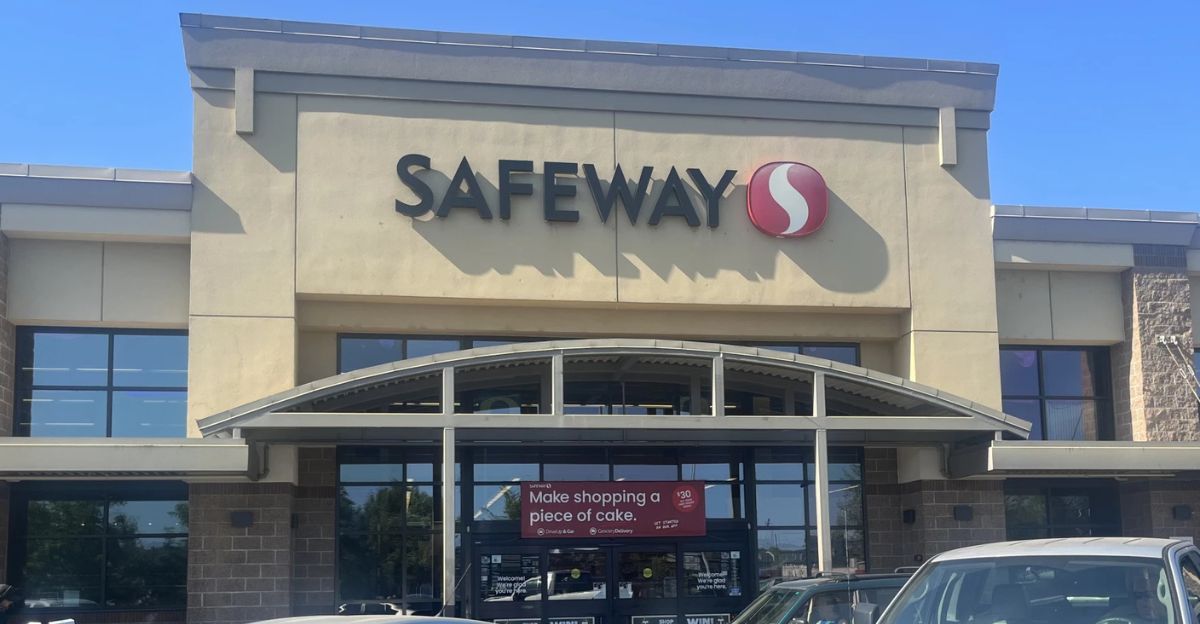
When thousands of grocery store workers walk out and become part of worker unrest, it will impact someone. What began as a limited walkout at select Safeway and Albertsons locations in Colorado has quickly escalated, with more than 100,000 workers nationwide potentially poised to join in.
The United Food and Commercial Workers (UFCW) union claims that constant understaffing, proposed cuts to healthcare and retirement benefits, and alleged unfair labor practices are the main reasons for the escalating action. Will they find a solution to end the chaos?
Months of Tense Negotiations

Since early spring, United Food and Commercial Workers (UFCW) representatives have discussed contract renewals with corporate leaders, focusing on demands for fair wages, improved healthcare coverage, and safer working conditions. As frustration mounted and deadlines passed without resolution, it was no surprise that this escalated to nationwide strikes.
“Everyone deserves fair negotiations without fear of retaliation,” the unions’ statement said. “We deserve fully staffed stores and fair pay that reflects our work. No one deserves to be bullied at work. By violating our rights, Kroger and Albertsons are making it harder to serve our customers and keep our stores running.”
Why Workers Are Striking

Workers struggle to make ends meet as their pay has failed to keep pace with inflation and the rising cost of living. Understaffing is another major grievance, with employees reporting that skeleton crews have become the norm, forcing them to take on multiple roles and endure increased physical and mental strain. Workers are also pushing back against proposed cuts to healthcare and retirement benefits and are demanding more predictable scheduling and job security.
“We authorized a strike to fight for better wages, better staffing, and a fully funded healthcare plan so that we can deliver the kind of service our customers deserve,” said Vickie Logerstedt, a cashier at Redmond Ridge QFC. “We have been more than patient for months, but these companies have offered nothing but crumbs and mealy language. Time has run out.”
The Strike Authorization

In Southern California alone, approximately 45,000 workers at Ralphs, Albertsons, Vons, and Pavilions grocery stores voted decisively in favor of authorizing an Unfair Labor Practice (ULP) strike, with approval rates reportedly as high as 90-95%. “A strike is our most powerful weapon,” said Essential Workers for Democracy. “If we strike together, we win together.”
The vote reflects deep frustration with stalled contract talks and labor violations, underscoring the workers’ readiness to take collective action. “This strike authorization vote means that we expect the companies to return to the bargaining table, negotiate a deal that works for everyone, and desist from their unlawful tactics before we walk out and hit the picket lines,” said UFCW Locals 324 and 770 Bargaining Committee.
Five States and Growing

What started as a localized dispute has quickly turned into a multi-state movement, with strikes now active across five states. Workers in California, Colorado, Washington, Oregon, and Arizona have joined in the negotiations, bringing grocery store operations in hundreds of communities to a standstill.
The rapid geographic spread reflects both the shared frustrations of grocery employees nationwide and the coordinated efforts of the United Food and Commercial Workers (UFCW) union to amplify their collective voice.
Impact on Customers and Store Operations

While most community members understand the reasoning behind these strikes, hundreds of stores have been forced to close, and even those that remain open are struggling to maintain normal operations. Many of these stores have been reducing hours, shuttering service counters such as delis and bakeries, and operating with skeleton crews or temporary staff.
Customers increasingly turn to alternative retailers, with demand for independent grocers, specialty markets, and big-box chains like Walmart and Target soaring.
Corporate Calls for Good-Faith Negotiations

In response to the escalating strike, Safeway, Kroger, and Albertsons have issued public statements emphasizing their commitment to good-faith negotiations and the importance of reaching a fair agreement for all parties involved. However, they also express concern about the impact of prolonged strikes on customers, employees, and local communities, urging union leaders to return to negotiations and avoid further disruption.
While management claims to value the contributions of their workforce and insists that open dialogue remains a priority, union representatives and striking workers argue that these statements ring hollow in the face of stalled talks and ongoing labor disputes.
A Fight for the Future

Workers and union leaders see this moment as a test of whether they can preserve hard-won gains or whether corporate efforts to cut costs will set a precedent that ripples the entire industry and beyond. With both sides deeply entrenched and the stakes higher than ever, this strike has become a defining struggle over dignity, stability, and the value of essential work.
“We’re taking on the two largest grocers in America, and so this fight is big. This is about more than just this contract. It’s about future contracts,” said UFCW Local 7 president Kim Cordova.
The Economic Stakes

In 2024, Safeway and Albertsons reported combined profits of $989 million, a staggering 112% increase compared to pre-pandemic levels. This proves how profit margins have soared even as workers struggle with stagnant wages and reduced benefits.
Striking workers argue that these robust earnings should translate into fairer compensation, improved staffing, and stronger job protections rather than being channeled primarily to shareholders.
Bargaining Continues, Stakes Rise

As bargaining continues, the stakes for grocery workers and the companies remain exceptionally high, with neither side showing signs of backing down. Negotiations are ongoing in several states, with union leaders insisting that only serious proposals addressing fair wages, healthcare, and staffing will end the strike.
Union representatives emphasize that the strike authorization votes and the willingness of tens of thousands of workers to walk out have shifted the balance of power, making it clear that superficial offers will not be enough.
